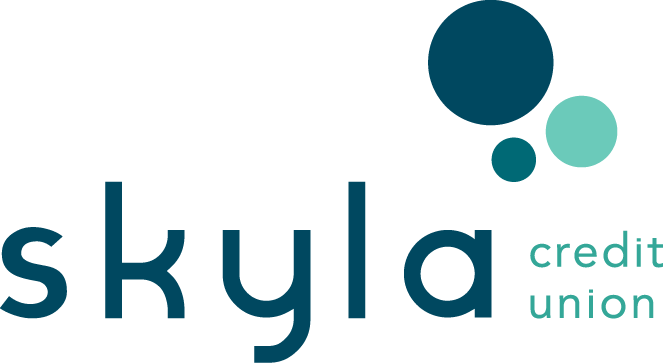What Do I Need to Qualify for a Mortgage?
%20(1).png)
Whether you're a prospective home buyer or just curious, you've probably wondered what it takes to qualify for a mortgage. When getting a loan, credit score, your debt-to-income ratio, and down payment amount play a factor in getting approved with a good interest rate and monthly payment.
 And depending on the lender and the type of mortgage you're interested in getting, some may require you to pay for mortgage insurance.
And depending on the lender and the type of mortgage you're interested in getting, some may require you to pay for mortgage insurance.
Does that mean more money you'll need to have to qualify for the loan? What if you don't have the extra cash? Does that jeopardize you from qualifying?
Don't worry - in this post, we'll break down the basics of qualifications for each loan and give you an idea of what to expect. Keep in mind that qualifications can vary depending on the lender, so when you're ready to move forward with a mortgage, it's always best to talk to your lender to get specific information about their lending requirements.
here's a quick look at what we'll go over
|
 what do i need to qualify for a mortgage?
what do i need to qualify for a mortgage?
Here's what you need to have when getting a mortgage.
- A qualifying debt-to-income (DTI) ratio
- A fair to good credit score
- Proof of income
- A down payment
debt-to-income (dti) ratio
Your debt-to-income (DTI) ratio is the percentage of your monthly income that goes towards paying down debts, including credit cards, car loans, and student loans.
Mortgage lenders use your DTI to help them determine whether or not you're a good candidate for a mortgage.
A high DTI can make it more difficult to qualify for a mortgage and may result in a higher interest rate. However, there are ways to lower your DTI, such as paying down debts or increasing your income.
To calculate your DTI, simply divide your monthly debt obligations by your monthly income. For example, if you earn $3,000 per month and have monthly debt obligations of $900, your DTI would be 30%. Generally speaking, a higher DTI may make it more difficult to qualify for a mortgage or to get the best mortgage terms.
QUICK TIP: There are programs available for borrowers with high DTIs. So, if you're concerned about your DTI levels, our Mortgage Loan Officers are here for you. You can send an email, give us a call at 704.375.0183 x 1525, or visit any of our branches.
There are two types of DTI ratios that lenders take into consideration when determining mortgage qualification and mortgage approval:
Knowing your DTI is an important part of the mortgage process and can help you get the best possible deal on your home loan. |
credit score
With credit scores, lenders like to see scores of 700 and higher which will give a favorable interest rate. If you're looking to build or improve your credit score, it'll help to:
- Pay On-Time: Missed or late payments can have a major negative impact on your score. A 30-day late payment could decrease your score by 60 points.
- Get Current: If you’re behind on your payments, get current and make an effort to stay current. Your score should increase the more you’re on time.
- Keep Balances Low: On revolving credit, such as a credit card, make sure to keep your balance low. You should also try to keep your utilization under 30%.
- No New Cards: Lenders want to see a healthy amount of credit lines open, but not too many. Plus, opening a lot of new accounts while you’re trying to build credit may hurt as rapid account buildup looks risky.
If you're looking to improve or want to understand more about credit scores, I have more credit tips that will help you see results:
QUICK TIP: Not all lenders require borrowers to have an excellent credit score to qualify for a mortgage. There are mortgage programs available if you have a credit score as low as 500. I'll get into those mortgage specifics in a bit.
|
proof of income
When supplying documents to the lender, proof of income will be required. Lenders like to see that your income is enough to cover new mortgage payments and other costs. So, they may require at least 30 days of your most recent pay stubs. They'll want to verify that your proof of income is true. So you may also be asked to bring W-2 forms and tax returns.
down payment
When getting a mortgage, in most cases, a down payment may be required in order to get the loan. The down payment is the portion of the purchase price that you pay upfront, and it's typically between 3% and 20% of the total purchase price.
For example, if you're buying a $200,000 home, you would need to make a down payment of $40,000. In some cases, you may be able to get a mortgage without making a down payment. Home loans like VA loans, USDA loans, and lenders like credit unions don't always require a down payment.
However, these loans often require special qualification criteria, and they typically come with higher interest rates and fees. As a result, it's always best to weigh your options when making a down payment.
 other mortgage qualification factors include:
other mortgage qualification factors include:
private mortgage insurance (pmi)
PMI is an insurance policy that is typically required by lenders when a borrower is making a down payment of less than 20 percent on a home loan. PMI protects the lender if the borrower defaults on the loan. PMI is typically paid by the borrower as part of the monthly mortgage payment and is a premium that’s usually included in the total amount of the mortgage payment.
PMI can be canceled once the loan-to-value ratio reaches 78%. However, PMI premiums can be paid upfront in a lump sum at closing or added to the total loan amount. Not all lenders require PMI like Skyla Credit Union but those who do, require PMI to protect their investment in case of borrower default, and it allows borrowers with less than 20 percent for a down payment to still buy a home.
closing costs
There are several factors to consider when taking out a mortgage, and closing costs are one of the most important things. Closing costs can vary depending on the lender and the type of loan, but they typically range from 2% to 5% of the total loan amount. This means that on a $200,000 loan, you could be looking at closing costs of up to $10,000.
While this may seem like a lot of money, it's important to remember that your down payment is also part of your closing costs. In most cases, you'll need to put down at least 20% of the purchase price to avoid paying private mortgage insurance (PMI).
So, if you're buying a home for $200,000, your down payment would be at least $40,000. Taking all these factors into account, it's easy to see why it's so important to factor in closing costs when getting a mortgage.
 what qualifications are needed for each mortgage?
what qualifications are needed for each mortgage?
Since there are a number of mortgages available, here's a quick look at the qualifications needed so you know what to do and what lenders will review when they receive your mortgage application.
*Credit scores may vary based on lender. Examples are for demonstrative purposes only.
Now that you have a quick look, here are some specifics to help you choose which mortgage you want be interested in getting.
conventional mortgage
Conventional mortgages are the most popular loans many lenders offer. The minimum qualifications needed to qualify include:
- Credit score: Conventional mortgage loans are great if you have a good or excellent credit score (620+). If you have a lower credit score, you may still be able to get a conventional mortgage loan, but you may have to pay a higher interest rate.
- Down Payment: Like Skyla, all lenders do not require a down payment for a conventional mortgage but for those who do ask for a minimum of 3%.
- Debt-to-income (DTI) Ratio: At Skyla, we ask that borrowers have a DTI no higher than 45%. For nonconforming loans, DTI must be up to 50%.
QUICK TIP: A non-conforming loan is a loan that doesn't meet the standards of government-sponsored enterprises (GSEs) like Fannie Mae and Freddie Mac. Examples of non-conforming loans include jumbo and government-backed loans like FHA, VA, and USDA. These typically have higher interest rates and may be more difficult to qualify for. |
- Private Mortgage Insurance: Not a requirement for all lenders. PMI is required for loans with a down payment of less than 20%.
You don't have to use a conventional loan just for a primary residence. If you're looking to purchase a second home or a vacation home, a conventional mortgage can be applied to those properties.
For more information on conventional loans here's what you should know.
jumbo loan
A jumbo loan is a mortgage that exceeds the conforming loan limit set by the Federal Housing Finance Agency. This limit varies depending on the location of the property but is typical $484,350 or higher. Jumbo loans are available in both fixed-rate and adjustable-rate mortgage options.
Since this loan exceeds the conforming loan limit, qualifications may be stricter.
- Credit Score: Borrowers need an excellent credit score (many lenders require 700+)
- Down Payment: Usually, a down payment of 10%- 20% down is required but many lenders may require a 5% down payment if your loan is smaller.
- Debt-to-income (DTI) Ratio: For nonconforming loans, DTI must be up to 50%.
- Private Mortgage Insurance: Since this loan offers a larger loan amount than a conventional loan, lenders may require borrowers to purchase PMI like conventional loans if you put less than 20% down.
Like conventional loans, you can use a jumbo loan for a primary residence, secondary investment, and vacation properties.
Click the link below to learn more about jumbo loans.
federal housing administration (fha)
Federal Housing Administration (FHA) loans are mortgages that are backed by the government. FHA loans were created to help low-income families become homeowners. They offer more flexible requirements like if you've had a foreclosure, filed for bankruptcy, and have a low credit score, you could still be approved for the loan.
- Credit Score: Credit score 500 - 579 but you have to make a 10% down payment
- Down Payment: If your credit score is 580 +, you can make a 3.5% down payment. (Psst... Keep in mind, that the greater the credit score the less of a risk the lender will see you as).
- Debt-to-income (DTI) Ratio: Your debt-to-income (DTI) ratio generally needs to be 43% or less.
- Private Mortgage Insurance: If approved, you'll be required to do an upfront cost of mortgage insurance premium (MIP). Mortgage Insurance Premium is the amount that you must pay each month to have your interest rate guaranteed by an insurer. Lenders who have borrowers with an FHA loan use MIP to protect themselves from high-risk borrowers. Typically, the cost will be 1.75% of the loan amount. You have the option to roll the MIP cost into the financed loan amount.
FHA loans are applied to homes that are primary residences, not secondary investment homes.
Here's more about FHA loans in this comparison piece, FHA vs. conventional mortgage loans.
usda loan
A USDA home loan is a mortgage that is insured by the US Department of Agriculture. These loans are available to rural homeowners who may not qualify for other types of mortgage loans.
- Credit Score: There are lenders who don't have a credit score requirement but the leaders who do ask that borrowers have at least a 640 credit score to qualify for automatic approval.
- Down Payment: Since USDA loans were created for individuals who may not qualify for other types of mortgages, a down payment is not required.
- Debt-to-Income (DTI) Ratio: No more than 41% of your income.
- Private Mortgage Insurance: There are two small fees that come with USDA loans. There's a 1% fee which could be paid for by the lender or the borrower. And there's an annual fee of 0.35% of the loan amount
Here's more to know about USDA loans.
va loan
A VA home loan is a mortgage loan that is guaranteed by the U.S. Department of Veterans Affairs (VA). The loan is available to eligible veterans, service members, and surviving spouses.
- Credit Score: There's no minimum credit score requirement.
- Down Payment: $0 down payment.
- Private Mortgage Insurance: No Private Mortgage Insurance required.
But this loan can't be used for vacation or rental properties and can only be used to purchase or refinance owner-occupied properties.
Here's more about VA loans.
are you ready to get a mortgage?
Now that you know what you need to get a mortgage, do you know which mortgage option would be better for you? If you're still pondering "hmm... which mortgage option would work best for me?" I have just the article that can help:
As always, if you have any questions, our Mortgage Loan Officers are here for you. You can send an email, give us a call at 704.375.0183 x 1525, or visit any of our branches.
As Content Strategist behind the Learning & Guidance Center, Yanna loves showing just how doable finance can be. Whether it’s simple tips, step-by-step guides, or comparison charts, she’s passionate about helping readers take charge and reach financial freedom with confidence
more resources for your home buying journey
What's the Most Important Thing to Understand About Credit Scores?
Need help understanding your credit score? Here’s what’s most important about credit scoring and the steps to take to improve it.
9 min. read
How Do I Choose the Best Mortgage Product for Me?
Unsure of which mortgage product is best for you? Here's a breakdown of each type of mortgage, so you can make the best decision for your unique situation.
6 min. read










